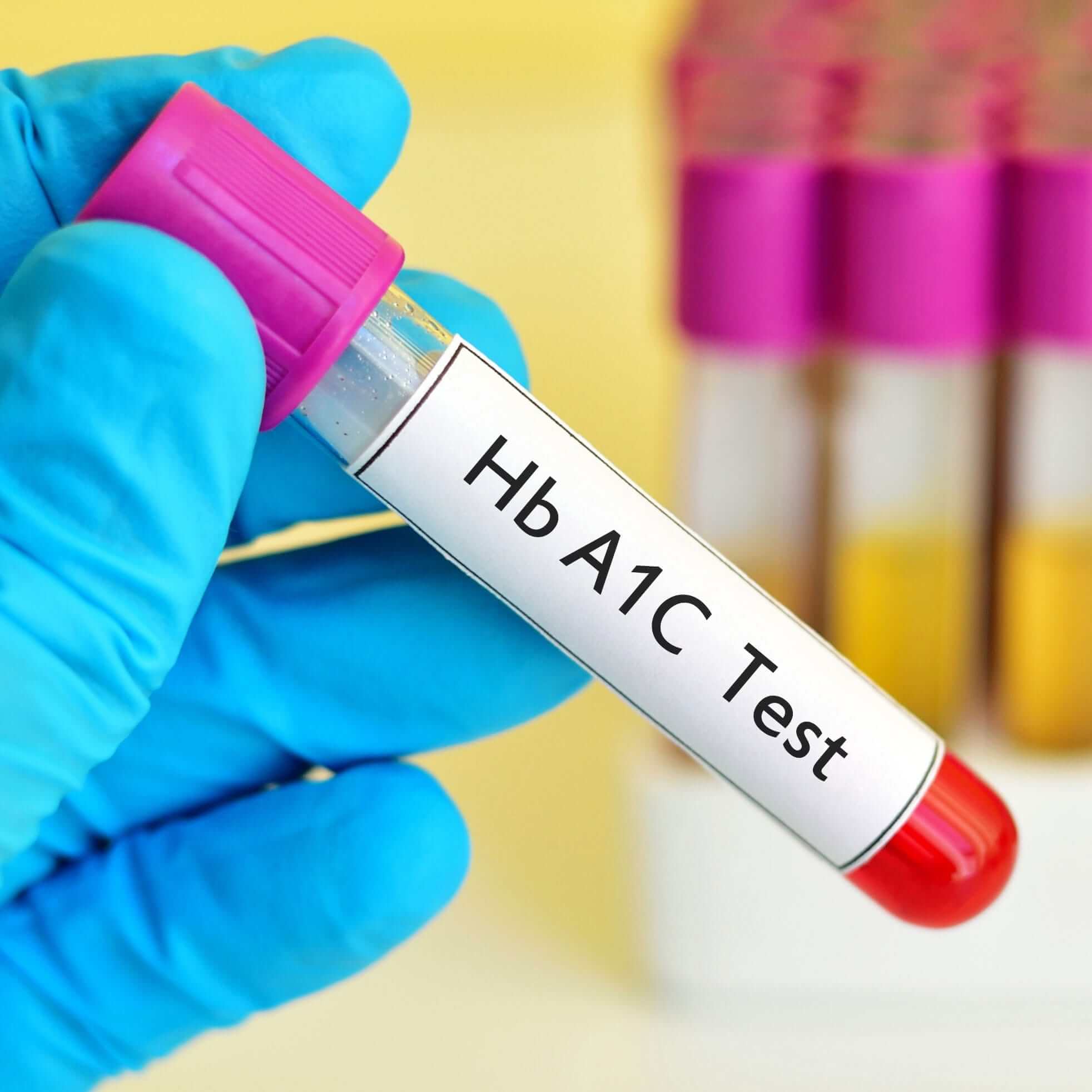Why does my A1C continue to go up even though I made no changes to my care?
This month we have received some interesting questions concerning diabetes and how it ultimately affects you. Many of you have challenges trying to control and maintain your blood sugars and your A1C level. By keeping your A1C number managed, you will experience fewer diabetes complications in the short-term and then down the road. Your heart, blood vessels, kidneys, eyes and feet will be spared of future problems. See what you can learn from other people with diabetes who may be experiencing similar things. They, too, are trying to control their blood sugars over time to live a healthy life.
Why has my A1C gone up even though I’m on the same medication and doing the same things I have always done to control my diabetes?
There are multiple factors which may play a role in your diabetes control especially over a long period of time. First, we need to review what the A1C represents. It is, “the average over a 2-to-3-month period of your blood sugars”. The A1C measures the amount of sugar that clings to a protein called hemoglobin in your red blood cells. A normal A1C is between 4.5-5.6%. A pre-diabetes A1C is between 5.7-6.4%. Diabetes is diagnosed with an A1C of 6.5%. The best diabetes control, with a low level of complications, is when your A1C remains at or below 7%. Although 7% is considered excellent for an A1C if you have diabetes, the important fact is the A1C number should be individualized. Have a complete and thorough discussion with your physician to find the best level for you.
Three Reasons Why Your A1C May Elevate Over Time
-
Progression of type 2 diabetes.
The longer you have diabetes, the more possible your blood sugars will increase with time even when you continue to do the same exact things to care for yourself. Diabetes is a progressive and chronic disease. Also, your cells will not respond to the insulin you already make over time. This is just considered the “progression of diabetes”. Studies show that, “even with the same treatment, A1C levels can go up by 1% every 2 years over the course of your lifetime when you have diabetes”.
-
Changes in your hormones
Hormones are the “messenger part of your endocrine system”. They are very important in overall glucose regulation. Everyone experiences stress in their life at some point. The problem is stress causes cortisol to pour into your blood stream which is considered a “fight or flight hormone”. Because it gets you ready to take quick action, it also raises you blood sugars. Other hormones released during the stress response include: epinephrine (which encourages more glucose production), GH-growth hormone (which causes insulin resistance), and glucagon (which keeps blood sugars and fuel balanced). When you have diabetes, glucagon levels rise instead of fall after meals, which makes blood sugars go higher.
Stress affects your hormones
After encountering multiple episodes of stress, your blood sugars can remain high from excess cortisol “hanging around in your bloodstream”. It can also raise your blood pressure. Women go through several hormonal changes during their lifetime. Each menstrual cycle may lead to a higher monthly blood sugar. Hormonal changes trigger ovulation and then menstruation for each month you do not conceive. Many women have trouble controlling their blood sugars the week before they get their period. That is because a hormone, called progesterone, increases and causes insulin resistance. It happens more frequently in type 1 diabetes but can occur with type 2 diabetes as well.
Elevated hormone levels
Elevated progesterone can also cause you to have food cravings especially for simple carbohydrates like candy, cookies, pastries, cakes, chips and other snack foods. Eating these foods will certainly raise blood sugars. When progesterone increases with each monthly cycle, it can even reduce your “desire and motivation to exercise”. This, too, will elevate your blood sugars. BCP (Birth control pills) contain progesterone and estrogen. High levels of estrogen, another female hormone, can raise blood sugars. Just having diabetes can cause irregular cycles for your periods and an imbalance of estrogen and progesterone for women. This then causes blood sugars to randomly rise. Monthly cycle changes will elevate A1C levels over time.
PCOS
Polycystic Ovarian Syndrome can increase A1C levels if not treated. This syndrome, which only affects women, does not have one specific cause. It is said to be related to genetics and the environment. It is much more common in females with diabetes. PCOS causes diabetes risk in females to climb 10% higher than the average risk of diabetes. PCOS causes androgens, or male hormones, to be higher than normal in these women with the condition. High levels of circulating androgens cause insulin resistance and higher blood sugars over time. Men who have either low or high levels of testosterone, the male hormone, can have increases in their A1C levels, immediately and in the future.
-
Gum disease.
Having gum disease that is uncontrolled or that you are unaware of can raise blood sugars and then your A1C. Gum disease can have no symptoms and go unnoticed for years unless caught by a dentist during an exam. Diabetes and gum disease have many crossovers between the 2 diseases. People with diabetes are 2-3 times more likely to have periodontal or gum disease. Severe gum disease can raise blood sugars and A1C levels in those who already have diabetes.
Causes of gum disease can include genetics, stress, those who have immune-compromised diseases such as HIV, Addison’s disease, Multiple sclerosis, those with dry mouth, xerostomia, diabetes, and those who use tobacco. Specific to diabetes is that high blood sugars cause the amount of glucose to accumulate in the saliva. This becomes a breeding ground for mouth bacteria. The bacteria, along with fragments of food, create a slippery coating on the teeth and gums called plaque. If the plaque is not removed at least every 12 hours, it can cause an infection.
Germs and bacteria accumulate in the gums and around the teeth. The soft gums and bone around the teeth dissolve over time. This leads to tooth decay and eventual tooth loss. The germs and bacteria in the gums are also released into the blood stream by chewing and brushing. This changes the body’s defense system and wears it down. Severe and uncontrolled gum disease may raise the risk of a stroke, heart attack, eye disease and kidney damage. Strong antibiotics and gum surgery may be needed to combat and resolve these infections.
Symptoms of gum disease
- Bleeding in the mouth especially when brushing or flossing
- Swollen, puffy, bright red and painful gums
- Shrinking and receding gums-being able to see the top of the tooth root which should be under the gum line
- Loose and shifting teeth
- Teeth that suddenly dislodge and fall out
- Bad breath
What can I do to prevent or lower my chance of gum disease so my A1C does not go up?
- Get a deep cleaning by your dentist, dental hygienist or periodontist when you have periodontal disease. “Deep cleanings have the same effect as adding another diabetes medication in lowering your blood sugars”.
- Avoid acidic drinks such as soda, diet soda, sparkling water, coffee, citrus juices (regular or sugar-free) and avoid adding lemon or lime slices to your plain water. Beer, white wine and Prosecco also have high amounts of acid. Acid erodes tooth enamel and can lead to decay. Plain, flat water is always the best choice especially when you have diabetes. If you choose to have a “fizzy drink”, drink it with your meal which will help neutralize the acid. Milk also neutralizes the acid in your mouth.Watch the number of acidic foods you eat. They include tomatoes, peaches, pineapples, grapes, plums, and grapefruit. When you eat fruit, eat it as part of your meal or add a handful of nuts when you eat the fruit to help neutralize the acid.
- Use a soft toothbrush or electric toothbrush and brush for 2 full minutes, twice a day.
- Use an enamel promoting toothpaste which can re-mineralize teeth, such as Sensodyne or Pronamel.
- Chew sugar-free gum with Xylitol between meals especially when you can’t brush. Suck on sugar-free lozenges with Xylitol if you suffer from dry mouth.
- Floss after meals and use a fluoride toothpaste and a fluoride rinse. Use a water-pik once a day.
- Brush your tongue or use a tongue scraper to eliminate the bacteria which accumulates on your tongue. Pay attention especially to the back of your tongue.
- Use a mouthwash without alcohol which may cause dry mouth. Even swishing with plain water or a little hydrogen peroxide can get food particles out between your teeth and remove plaque.
- Anemia is seen in 10-30% of people with diabetes and 1/3 of those are iron deficient. People who are vegans and give blood often can also have iron deficient anemia. Changing your diet may be enough to reverse this condition. Foods high in iron are red meat, dark turkey meat, quinoa, pumpkin seeds, shellfish, dark leafy green vegetables (such as spinach and chard), and iron fortified foods like cereals and breads. Talk to your physician about ways to increase your iron. You may need supplements. Menopausal women should be careful about adding too much iron to their diet.
- Water makes up about 50-60% of your body weight. Sometimes you forget to rehydrate after exercising, being in the heat for too long or when being ill and vomiting and/or have diarrhea. When there is less water in your body that means your blood sugar is much more concentrated. “The ratio of sugar to water has changed”. Water carries oxygen and nutrients including glucose from your bloodstream to your cells. After several episodes of untreated dehydration, your A1C may go up and stay elevated. You may feel tired, dizzy, have a high heart rate, have a headache, muscle cramps and crave sugar. Make sure not to drink very sugary drinks such as sports drinks and sodas which will ultimately raise blood sugars.
- Several medications may affect your blood sugar over time without you being aware. This can increase your A1C level. Included are opioids for pain, steroids for swelling, pain or breathing issues, anti-depressants, anti-anxiety pills, cholesterol lowering medications and blood pressure medications. Be sure to check with your doctor if you are on these medications and start to see your A1C going up.
What can stabilize my A1C levels even as my diabetes progresses?
Even with the progression of your diabetes, there are things you can do which will have a positive effect on maintaining your A1C at a desirable level.
Food
Choices of your foods, timing of food and amounts of food can have a positive influence on maintaining your A1C levels at a good number over time. Consider tools such as measuring cups and a kitchen scale to recognize true portion sizes. Stick to whole, unprocessed foods you can easily identify such as fruits and vegetables. Include beans and legumes, starchy vegetables (in moderation), low fat dairy, lean meats, fish and poultry, whole grains (in small portions) and calorie-free beverages.
Eat small servings of unsalted nuts and seeds as a snack. Eat your meals at proper times such as every 4-6 hours depending on your hunger and diabetes medication. Use the plate method: ½ of the plate should contain non-starchy vegetables, ¼ lean protein and ¼ starchy vegetable or whole grain. Do not eat until you feel full or stuffed. Never skip meals even if you are not hungry. Award yourself a treat, now and again – that is why it is called “a treat”. A square of dark chocolate or a small dessert on a special occasion is fine. This is simple advice for eating with diabetes to help maintain a reasonable A1C.
Weight Loss
Losing 5-10% of your present body weight (if you need to lose weight and most people with type 2 diabetes do) is a sure way to lower your A1C even with long term diabetes. Weight loss allows your body’s insulin to work more efficiently, lower your daily blood sugars and eventually your A1C. This is the best thing you can do to reduce future complications.
Exercise
Exercise is the single most important habit to incorporate and keep maintaining a good A1C. Exercising actually utilizes sugar in your bloodstream to feed your muscles. This allows them to do the exercise or work. A combination of aerobics such as walking, swimming, dancing, using weight machines, free weights or resistance bands should be combined for a minimum of 150 minutes a week. You can break this down into small increments, just be consistent. Try not to skip more than 1-2 days.
Manage your stress & anxiety
As discussed above, stress and anxiety can raise blood sugars. Use techniques such as meditation, deep breathing, or yoga to balance out stress responses. Seek a mental health counselor or therapist if you can’t do it on your own. Consider medication if necessary.
Keep all medical appointments
You need to have your A1C tested between 2-4 times a year, depending on your situation, to follow your diabetes progress. Follow-up with your health care provider, even when you are feeling well. There may be subtle changes in your blood sugars that you do not recognize and your A1C may be climbing up silently.
Medications taken as directed
No one “likes to take medicine” but many of us need it. Take it as directed. If you have trouble remembering, find a simple way to keep on a schedule. It can be as easy as writing it down, keeping the bottles on the kitchen table, using a smart watch with an alarm, or keeping extra medication in your purse or pocket. If you need medication, do not skip it. Have automatic refills so you do not miss a single dose.
Check blood sugars frequently
Whether you test with a glucose meter several times a day or use a CGM (continuous glucose monitor) and randomly check, it does not matter. You need to keep up with blood sugar patterns daily, so you are aware when are you high and when you drop. Does your sugar drop suddenly? Do you go high for no apparent reason? Do not wait until you get your A1C results in 3 months. Waiting can give you a false sense of security and you will not be aware that your blood sugars may be creeping up. You can prevent long term damage and diabetes complications when you stay informed.
Diabetes can be challenging at times. The good news is diabetes is quite manageable when you take the time and effort to maintain blood sugars. Don’t let your A1C get out of control, especially for long periods of time. Know your A1C number, understand why it may be elevated and know what you can do to get it back down. Feel good and live your best life with diabetes!
References:
- https://www.hopkinsmedicine.org/health/conditions-and-diseases/
- https://www.verywellhealth.com/diabetes-and-womens-menstrual-cycles-4067212
- https://www.cdc.gov/diabetes/basics/pcos.html
- https://www.cdc.gov/diabetes/managing/manage-blood-sugar.html
- https://www.webmd.com/diabetes/tips-to-lower-A1C
- https://www.mayoclinic.org/diseases-conditions/diabetes/in-depth/diabetes/art-20043848
- https://www.dentalhealth.org/blog/what-foods-and-drinks-contain-acid-and-why-it-spells-trouble-for-our-oral-health







Leave A Comment